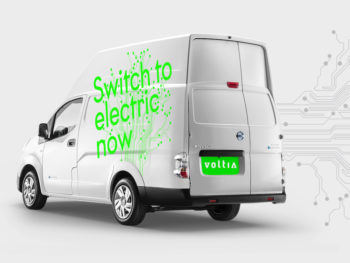A 2.5-year trial of electric delivery vans in London has reinforced that they provide a more cost-effective and eco-friendly alternative to diesel vans for fleets, bringing a number of benefits.

Run by the Mayor’s Office in partnership with Gnewt Cargo and with the help of funding from Innovate UK, the trial evaluated the performance, impact and commercial viability of using electric vehicles for last-mile deliveries in central London from July 2017 to end of December 2019.
The trial compared the capabilities of BD Auto eDucato vans plus Nissan e-NV200 vans converted by Voltia to offer increased space, alongside smaller Nissan e-NV200s converted by Vic-Young and Gnewt’s existing smaller Nissan e-NV200s and Renault Kangoos. It also used two hired diesel vans; in total 26 vans were tested.
The recently released final report, based on telemetry data from Fleet Carma, makes for interesting reading for fleet operators looking to make the switch electric.
- The larger trial electric vans, which provided increased payload volumes, delivered on average 30% more parcels per week compared to the smaller vehicles – helping to reduce congestion by making fewer trips. Based on current demand, 112,000 e-vans could replace 281,000 diesel vans daily journeys in London.
- The trial EVs also travelled 20% further, on average per week, than the small non-trial EVs. Of all trial EVs, the Voltia travelled the greatest distance.
- The trial Voltia and Vic-Young electric vans used five times less energy per km than their diesel equivalents.
- The overall electricity cost for charging up the trial vans was 75% less than the fuel costs to run their diesel equivalents, based on 2019 costs.
- The socio-environmental benefits associated with replacing diesel vans with electric equivalents (including cutting greenhouse gas emissions) equated to an estimated 1.8p to 2.6p benefit, per km driven, to Greater London.
- On average, one day of last-mile deliveries used approximately 30% of the battery’s charge.
- Voltia was about 20% less expensive to operate than its diesel equivalents.
The trial also made use of smart charging and found this reduced the grid connection size needed to accommodate the larger Gnewt Cargo fleet by over 100%, while the use of smart charging reduces the grid and operational charges associated with the larger EV fleet, bringing significant benefits to fleets too.
Overall, the test on the trial vans showed total emissions savings of 1,136.8g of PM10 particulates, 481.3kg of NOx and 77.9 tonnes of CO2; the equivalent of 142 return trips by road using a diesel Nissan NV200 van from Lands End to John O’Groats.
The London trial concluded that, in terms of operational performance, cost, vehicle emissions and impact on the grid, deliver EVs offer an operationally competitive and environmentally friendly fleet alternative to diesel vans.

